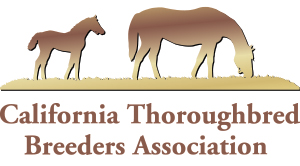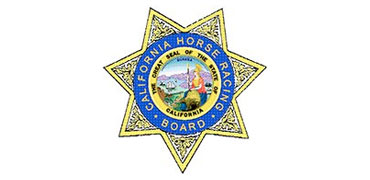By Bloodhorse.com
ALBANY, Calif. (Apr. 21, 2016) — Despite multiple board members expressing frustration with the way the process was handled, the California Horse Racing Board approved a reallocation of dates within the Northern California fair circuit April 21 during a meeting at Golden Gate Fields.
The board approved a proposal that will move six race dates assigned to the San Joaquin County Fair in Stockton (Sept. 21-Oct. 4) to the Alameda County Fair in Pleasanton, which already has a meet scheduled for June 15-July 5. San Joaquin County Fair chief executive officer Kelly Olds said the 2015 meet at Stockton lost money, and the fair could not afford to run the meet in 2016.
“The 2014 season was only marginally profitable for Stockton,” Olds said. “I can’t say that about the 2015 races. We lost money and our fair cannot stand to lose again. The race dates that have been allocated to Stockton come at a really bad time in our county. It’s harvest season, kids are back in school, the weather is generally pretty hot—and we had fires in the foothills where thousands of people were evacuated. There were alerts telling people to stay home and out of the smoke.
“We had very poor attendance, the on-track handle wasn’t as good as it had been, and the off-track handle was horrible.”
The California Authority of Racing Fairs presented a proposal to move Stockton’s dates to Pleasanton, but it was met with opposition from multiple industry stakeholders at the Thursday meeting.
The Stronach Group representative Scott Daruty, speaking on behalf of Golden Gate Fields, said the Bay Area track should have been included in the discussion of the reallocation of the dates prior to the CHRB meeting and generally opposed the process. Both CARF and Golden Gate have engaged in an ongoing dispute over dates in recent years.
“Golden Gate Fields was never consulted in this process,” Daruty said. “The first we heard Stockton was not running its dates was when this agenda came out. I’m a little bit troubled that this is turning into a bypass of the dates allocation process. Dates were granted to Stockton based on representations that they were committed to racing, and they wanted to race live.”
Daruty also expressed a desire to acquire more summer dates for Golden Gate, which clashes with the fair schedule in the region, and said he believes the track he represents should be in consideration for the reallocation of the Stockton dates.
“Maybe the right answer is Pleasanton should run more days, but it shouldn’t be because you already gave them to Stockton and now they’re going to be moved there,” Daruty said. “It should be because you’ve heard all the issues and decide you want Pleasanton to run five weeks next year instead of two or three.”
Fellow Stronach Group representative Joe Morris emphasized some of Daruty’s points and also brought up the lack of a turf course at Pleasanton, which isn’t a problem at Golden Gate.
“If those dates aren’t run at Stockton, Golden Gate should be considered to run them,” Morris said. “We’ll be running through Sept. 18, so it will be a continuation of that meet. Those two weeks are also in a period in the overall California calendar where there wouldn’t be turf racing in the state for the first week. There would be partial turf racing at Santa Anita during the second week, but Golden Gate sits here with the best turf course in the North.”
CHRB member Steve Beneto took issue with the idea of fair dates moving to a non-fair track.
“Pleasanton has always been a backup to Golden Gate, and I’m disappointed in what you guys have said today, that Pleasanton shouldn’t have the dates,” Beneto said. “If it wasn’t for Pleasanton, (which has served as) a training center for the overflow from Golden Gate, it’s about time we throw them a bone.”
Representatives from the Thoroughbred Owners of California and the California Thoroughbred Trainers also expressed disappointment that they weren’t involved in the process to create a proposal to present to the CHRB, though multiple CARF members in attendance said they reached out to both parties.
“It’s frustrating to be a significant stakeholder in this industry and not having any discussion of this matter,” TOC president Nick Coukos said. “Neither CARF nor Oak Tree sat down with us and had this discussion about why this was happening and the details of the move. We’re very disappointed in the Oak Tree-CARF relationship.”
Similar sentiments were expressed by board members, but with the urging from CARF representatives—based on planned advertising and marketing campaigns—the proposal to assign the dates to Pleasanton passed by a 4-1 vote, with only Madeline Auerbach voting against.
Richard Rosenberg proved to be the swing vote. After voting to push a decision on the item to the CHRB’s May meeting, in which a required four-vote majority was not reached, Rosenberg then voted to approve the dates reallocation. CHRB members George Krikorian and Alex Solis were not in attendance.
“One of the things I’m most disturbed about in this whole agenda item was the fact that it wasn’t presented to a very significant part of the industry—the owners,” Auerbach said. “What I don’t understand, and has not been addressed, is why it was done in a fashion where we couldn’t compare like to like. I am not respectful of the participants when they are not respectful to us.”
CHRB chairman Chuck Winner echoed that sentiment to close the discussion, even though he voted to give the dates to Pleasanton.
“The way we went about this is absolutely not acceptable for the future,” Winner said. “I understand all the hurdles you guys had to jump over, and I recognize that and appreciate it, but the truth of the matter is, the circumstances put this board in a very difficult position and it was very unfair to the other participants—Golden Gate, TOC, CTT, the various participants that have a right to be in these discussions. We, as a board, were put in a position we weren’t comfortable with.”
Also during the meeting, the CHRB approved a proposal that requires safety vests for all people mounted on horses at a CHRB facility, and approved another to be sent out for a public comment period. That proposal would require identifying microchips for all horses racing in California, but that measure is still several steps away from being enacted.


